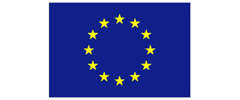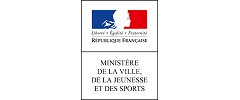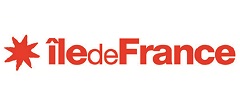New project started in Romania and Ukraine
GEOSAN and WECF launch 1-year project in Garla Mare with support of Fondation Ensemble
17.09.2005 |Margriet Samwel
Children of Garla Mare village, Romania, at the celebration of the project start
New project supported by Fondation Ensemble has started in Ukraine and Romania
On 1 September 2005 a one-year project was started in Ukraine and Romania.
This project “Sustainable Development for All - Ecological Sanitation and Waste-(Water) Management in Rural Areas of Ukraine, Romania and other Eastern European/NIS countries” is funded by the French "Fondation Ensemble".
The project has 2 parts, for the project in Ukraine the local NGO Mama 86 will be the project partner of WECF. For the project in the village Garla Mare, Romania, WECF local partner NGO “GEO-SAN” will be responsible.
Project builds on WECF’s experience with hygiene and sanitation in Eastern-Europe
Many of the members of WECF have choosen access to safe drinking water and hygienic sanitation as their priority. Since 1996 practical projects on how to improve water and sanitation have been carried out by the WECF network. As in many rural areas, latrines, septic tanks and leaking sewage systems contribute considerably to pollution of water resources, WECF has been the first to start developing the model of ecological sanitation in Eastern Europe.

A girl and old man at the project start celebration in Garla Mare
Ecological sanitation; prevents pollution and recycles nutrients
WECF’s currently implements programmes on ecological sanitation in 9 villages in 5 countries; Afghanistan, Armenia, Bulgaria, Romania, Ukraine. WECF’s members in these countries have build demonstration project with dry toilets for schools. These dry, urine-diverting, toilets, collect urine separately from feacal material. In this way the faecal material only needs to mixed with dry organic material (leaves, wood spanes, ashes) in order to compost well, and turn into good humus for soil improvement. The urine does not get contaminated from the bacteria from the faecal material and after a safety-storage period is used as high-quality fertilizer.
All demonstration projects have been carried out in cooperation with local universities and the University of Technology Hamburg-Harberg (TUHH). The TUHH also assures scientific follow-up after project ending.
Expected results of the project with Fondation Ensemble
The 1 year project with Fondation Ensemble will Improve the direct living conditions of the poor in rural areas by developing access to affordable and hygienic sanitation (ecological sanitation) and improved waste-(water) management. Thereby the project will also improve the quality of surface and groundwater – in many places used as drinking water – and thus improve the ecological and health situation in rural areas.
The project will also build capacity and civil (women’s ) movement in rural areas so that rural populations can take an active part in the economic, social and environmental development of their communities and better fend for themselves when national and international policy priorities are set (and where they are currently often overlooked).
Activities that will be carried out include building ecosan toilets for a School and Townhall
One Eco-san toilet building will be build in the school of Stepanovka village (Odessa province). The school accomodates children from 5 villages. The toilet house will contain 11 toilet rooms and serve 350 pupils and 50 teachers.
In the village of Garla Mare, 1 public ecological sanitation toilet building will be build in the center of town as demonstration projects and for use by all citizen’s. In addition, 5 farmers will have started to use the products of ecosan.
In addition to these ecosan demonstation projects, the project will also include awareness raising, capacity building and development of solide waste strategies for the villages in cooperation with the Universities of Wageningen (Netherlands) and Hamburg Harberg (Germany).

Dancers, at the project start celebration in Garla Mare
THE EXAMPLE OF THE VILLAGE GARLA MARE, ROMANIA
Some Background Information on Garla Mare, Romania:
Garla Mare is a village with 3500 citizens, app. 1200 households, in the Mehedinti district (southern part of the country). This village has neither gas supply nor drinking water supply nor a sewage system. Solid waste collection and re-utilisation are also absent.
Polluted drinking water for all
There are 78 public wells and 480 private wells which provide the households with drinking water. This water comes from a 15 – 25 meter deep aquifer. 83 % of the households use their own well, while 10 % use a public well for drinking and cooking purposes. Most of the wells are badly maintained. Most of the wells have polluted water that does not meet WHO standards for the quality of drinking water. For example, none of the 78 public wells tested as part of the WECF project had clean water.
Unemployment and poverty
The main problems of the citizen’s of Garla Marle is their lack of money, no/low income, lack of employment, and too high expenditure in relation to income. The average monthly pension is 1 million Lei (2002: 30 €), while average monthly salaries are also rather low, for example the salary of a teacher is approximately 65 € per month.
In conclusion, almost all dwellers of Garla Mare do not have access to safe drinking water, moreover, it seems that they do not have alternatives to the water they currently consume.
Romanians and Roma
Socially the village of Garla Mare is divided between the Romanian population and the Roma population (30%), with very different cultural heritage and language. Some of the Roma are Jehovah witnesses.
Previous project results
The project with Fondation Ensemble Builds on 4 years of cooperation between WECF and Garla Mare. The first common project, financed by the Dutch Ministry of Foreign Affairs, had to deal with severe polluted groundwater, which was used by the citizens as drinking water. With high unemployment and poverty and low awareness on the relation of health and environmental, appropriate and inexpensive solutions had to be developed.
In addition to an improvement of the sanitary conditions though the construction of ecological urine diverting toilets and washbasins for the primary school, the project resulted in the founding of two local NGOs. The NGOs are aware of the environmental, social and health problems in their community and country, and try to implement practical solutions and raise awareness about these solutions among schools and citizens.

Three women at the project start celebration in Garla Mare
The Aim of the project “Sustainable Development for All”
WECF will carry out the new SDA project in with the local NGO “GEO-SAN”. The elected leader of GEO-SAN is a young woman, Claudia Tulei. She has a group of young women and men working with her. They cooperate closely with the current mayor of the village, as well as with the teachers of the schools of Garla Mare, which is a condition for the implementation of the project.
The aim of the project is to continue the strategies, which were developed during the first project in Garla Mare and during discussion with the citizens: Improving the direct living conditions of the poor in rural areas by developing access to affordable and hygienic sanitation (ecological sanitation) and improved waste-(water) management
Therefore environmental protection by a better solid waste, human and animal waste management will be the priorities to work on during this project.
- Improve the quality of surface and groundwater – in many places used as drinking water – and thus improve the ecological and health situation in rural areas
- Build capacity and civil (women’s) movement in rural areas so that rural populations can
- Take an active part in the economic, social and environmental development of their communities
- Better fend for them selves when national and international policy priorities are set (and where they are currently often overlooked)
Project launched with a “Citizens Eco-san Party” in the school-yard
The first activity implemented by GEO SAN was organizing a party in the yard of the primary school with the aim raise awareness about the project aims, and to give all the citizens the occasion to see and to try out the dry urine diverting toilets of the school. These toilets are the first ecological toilets ever constructed for a school in Romania.
At least 300 citizens, old and young, Roma and Romanian, attended the party and were provided with free drinks and some snacks. A local life-music group invited the citizens to dance and to feel well.
The mayor of Garla mare, the director of GEO SAN and a representative of WECF gave speeches, explaining the goal of the new project, the planned activities and the aim of this “ecosan” party. Information materials on advantages of ecological sanitation and disadvantages of conventional sanitation were prepared by GEO SAN and WECF and provided to the citizens.
Expected results of the project
The expected results of the project are:
- 50% of citizen’s of Garla Mare are aware of the level of pollution of their drinking water well.
- Public wells will be analysed on drinking water quality and marked.
- One public urine diverting toilet has been build for the town hall and one has been build in the center of village as demonstration projects and for use by all citizen’s
- Farmers have started to use the products of ecosan
- A strategy for solid waste management has been developed by the citizen’s of Garla Mare
- Some Illegal waste dumps have been cleaned up
- A compost site and collection system has been developed for the village
- A strategy for eco-agro tourism has been developed by the citizen’s of Garla Mare Inventories of potential sites, locations, trails, fauna, flora have been made
- Regular events for the village community will be organized
- Citizens will have access to Internet in the town hall

Musician at the ecosan party in Garla Mare


































